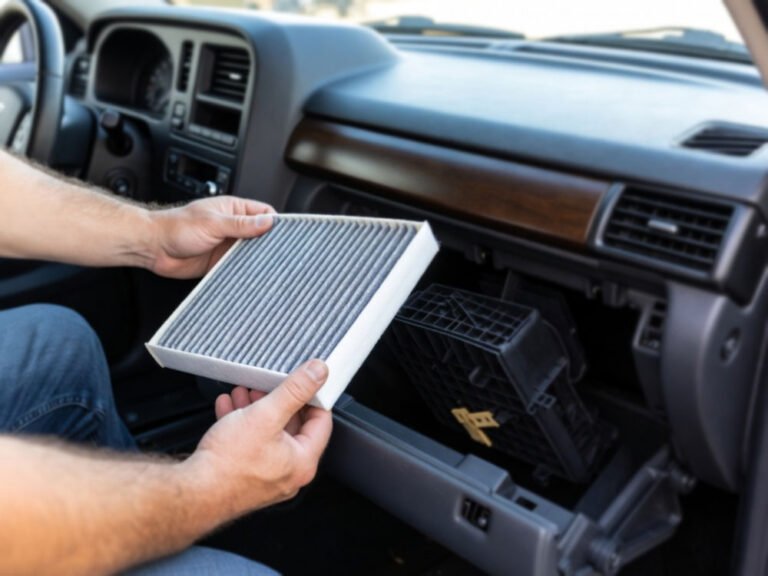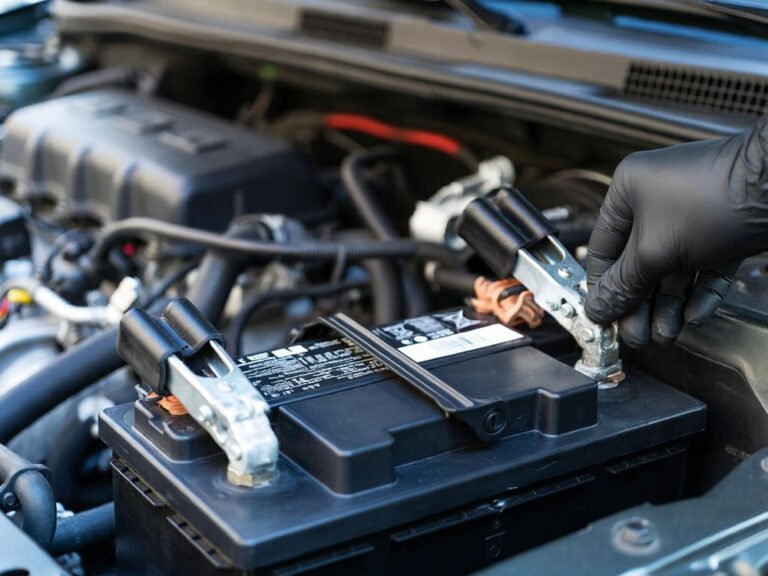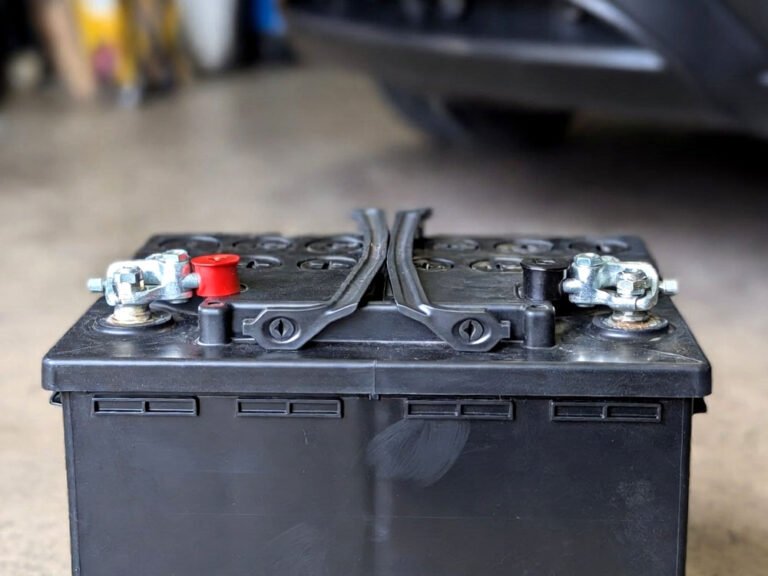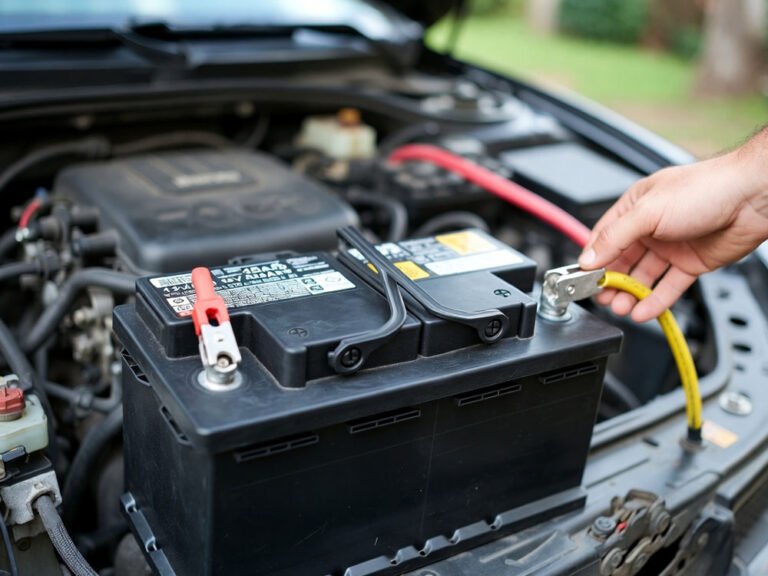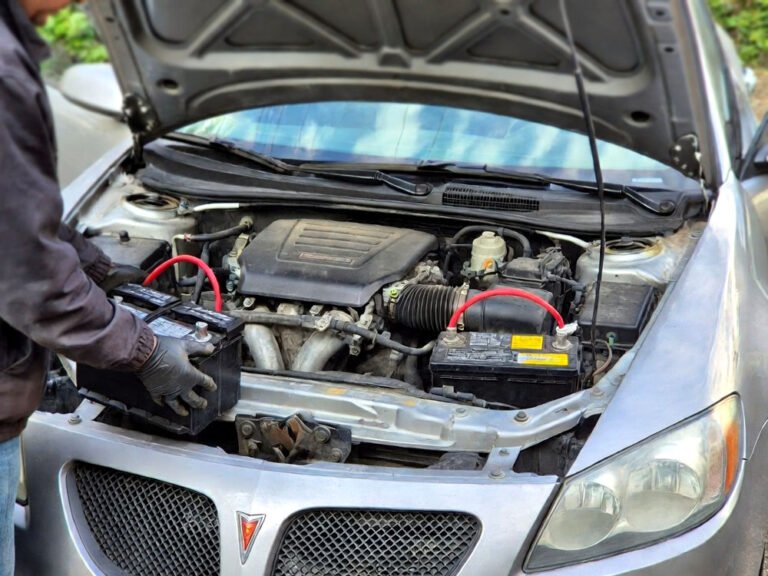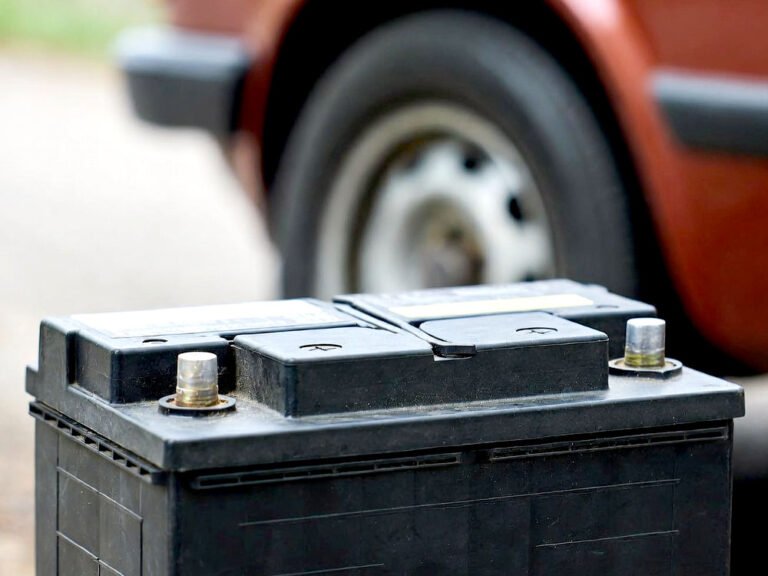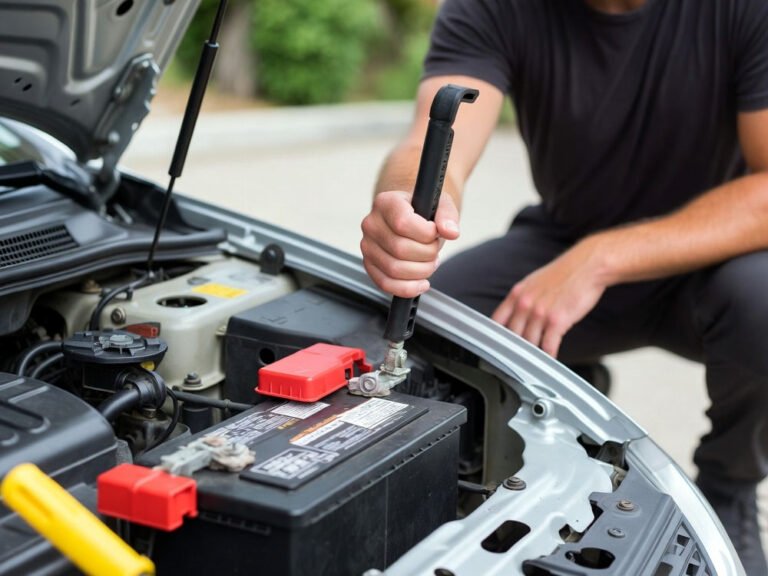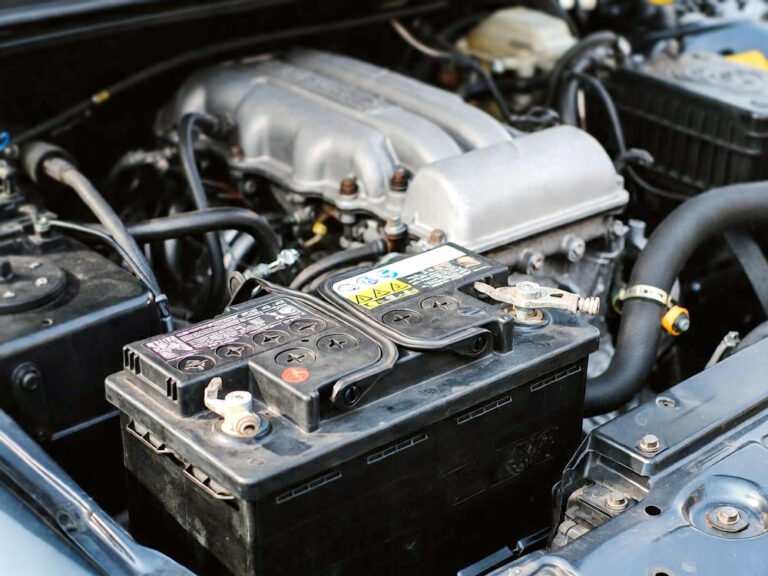You might be driving your car and suddenly hear strange noises when you press the gas at low speeds. It can be scary and confusing. You want to fix it fast so your car stays safe and runs smooth. In this article, you will learn why your car makes noise when accelerating slowly and how to find the problem. We will talk about common causes and simple ways to check and fix your car. Let’s help your car stop making those weird sounds!
Engine Problems That Cause Noise When Accelerating Slowly
When your car makes noise while you speed up at low speed, the engine is often the first place to check. The engine works hard to give your car power. Sometimes, parts inside the engine don’t work right or wear out, and that causes noise.
For example, if the engine is low on oil, it can make a knocking or tapping sound because parts rub together without enough lubrication. Also, bad spark plugs can make the engine misfire, causing a rough sound and less power.
Another reason for engine noise is a dirty air filter. When the air filter is clogged, the engine doesn’t get enough air to burn fuel properly, making it noisy or rough. The timing belt or chain inside the engine can also cause noise if it’s loose or worn out. This belt helps the engine parts move together in time, and if it slips, the engine can make a rattling noise.
Sometimes, the engine mounts (the parts that hold the engine in place) get old and cracked. This causes the engine to shake and make noise when you press the gas. You can check the engine oil level and look for leaks. Also, listen closely to the engine when you start the car. If you hear knocking or tapping, it might be time to visit a mechanic.
- Low engine oil causes knocking sounds
- Bad spark plugs lead to misfires and rough noises
- Dirty air filter reduces airflow and causes noise
- Worn timing belt or chain causes rattling sounds
- Broken engine mounts cause shaking and noise
Exhaust System Issues Making Noise at Low Speed
The exhaust system is the car’s way of pushing out gases after the engine burns fuel. If the exhaust system is broken or has holes, your car can make loud noises, especially when you press the gas slowly. One common problem is a hole or crack in the muffler, which is the part that makes the car quiet. When the muffler is damaged, you hear loud roaring or rumbling sounds.
Another part of the exhaust system is the catalytic converter. It helps clean harmful gases before they leave the car. If the catalytic converter is clogged or broken, the car might make a rattling or hissing noise. Sometimes, the pipes that connect parts of the exhaust system get loose or rusty. Loose pipes can make banging or clanging sounds when you drive.
You can check for exhaust problems by listening for loud or strange noises from under the car. Also, look for black smoke or a bad smell, which can mean the exhaust system is not working right. Fixing exhaust problems fast is important because a broken exhaust can make your car unsafe and cause pollution.
- Holes or cracks in the muffler make loud noises
- Clogged catalytic converter causes rattling or hissing
- Rusty or loose pipes create banging sounds
- Black smoke or bad smell shows exhaust issues
- Loud noises from under the car often come from exhaust problems
Transmission and Gearbox Noise When Accelerating Slowly
The transmission is the part of your car that moves power from the engine to the wheels. When it is not working well, you can hear strange noises while accelerating slowly. One cause is low or dirty transmission fluid. This fluid helps the gears inside the transmission move smoothly. If the fluid is old or low, the gears rub together and make whining or grinding sounds.
A worn-out clutch in manual cars can also cause noise. If the clutch is slipping, it makes a squealing or grinding noise when you press the gas slowly. In automatic cars, the torque converter might be the problem. When it is damaged, it causes a humming or buzzing sound.
Sometimes, the gears inside the transmission get worn or broken. This causes clunking or banging noises, especially when you change speed at low rates. Transmission problems can be very serious and expensive to fix, so it’s good to check fluid levels and listen carefully for new noises.
- Low or dirty transmission fluid causes whining or grinding
- Worn clutch leads to squealing or grinding in manual cars
- Bad torque converter causes humming or buzzing in automatics
- Broken gears make clunking or banging sounds
- Regular fluid checks help avoid serious transmission damage
Wheel Bearings and Tires Making Noise on Acceleration
If your car makes noise when you speed up slowly, the problem can come from the wheels or tires. Wheel bearings are small parts that help the wheels spin smoothly. When they get old or damaged, they make a growling or humming noise that changes with speed. This noise often gets louder when you turn or accelerate.
Bad tires can also cause noise. Worn or uneven tires can make a thumping or buzzing sound when you drive slowly. Sometimes, stones or dirt get stuck in the tire tread, causing clicking noises. Tires that are not balanced properly cause vibration and noise when you accelerate.
It’s a good idea to check your tires for wear and tear and make sure they are balanced and inflated to the right pressure. Also, listen carefully for noises that change with wheel speed. Fixing wheel bearing or tire problems early keeps your car safe and quiet.
- Damaged wheel bearings cause growling or humming noises
- Worn or uneven tires make thumping or buzzing sounds
- Stones in tire tread cause clicking noises
- Unbalanced tires create vibrations and noise
- Regular tire checks keep your car smooth and safe
Problems With Drive Shaft or CV Joints Causing Noise
The drive shaft and CV (constant velocity) joints help move power from the transmission to the wheels. If these parts wear out, your car can make clicking, clunking, or knocking noises, especially when accelerating at low speed. CV joints are covered by rubber boots. If the boots get torn, dirt and water enter, causing damage and noise.
A worn drive shaft can make a clunking or banging noise when you press the gas. This happens because the shaft is not spinning smoothly. The noise can get worse when turning or going over bumps. Sometimes, the universal joints (U-joints) on the drive shaft get dry or loose and make a squeaking or knocking sound.
You can check for torn CV boots or grease leaks around the wheels. If you hear clicking noises when turning or accelerating, it’s likely a CV joint problem. Fixing these parts quickly is important because broken drive shafts or CV joints can stop your car from moving safely.
- Torn CV boots let dirt in and cause clicking noises
- Worn drive shaft makes clunking or banging sounds
- Dry or loose U-joints cause squeaking or knocking
- Clicking noise when turning often means CV joint damage
- Regular checks prevent drive shaft and joint failures
Engine Mounts and Other Parts Causing Noise at Low Speed Acceleration
Besides the engine and wheels, other parts can cause noise when you accelerate slowly. Engine mounts, as mentioned before, hold the engine steady. When they break, the engine moves too much and makes noise or shakes. Transmission mounts can do the same for the transmission, causing banging sounds.
Loose or broken belts under the hood can also make noise. When belts wear out, they can squeal or chirp, especially at low speeds. Sometimes, the cooling fan or alternator makes noise if their parts are bad or loose. Even loose heat shields under the car can rattle and cause annoying sounds.
Check for loose parts under your car or hood. If you feel shaking or hear rattling noises that change when you press the gas, mounts or belts might be the problem. Fixing these small parts can make a big difference in how your car sounds and feels.
- Broken engine or transmission mounts cause shaking and noise
- Worn belts make squealing or chirping sounds
- Faulty cooling fans or alternators cause humming or rattling
- Loose heat shields create rattling noises
- Checking and tightening parts reduces noise and improves safety
Final Thoughts
When your car makes noise while accelerating at low speed, it can be scary. But knowing the common causes helps you find the problem faster. Engine issues, exhaust problems, transmission troubles, wheel bearings, and drive shafts are all important to check. Don’t ignore strange sounds because they can mean serious damage. Regular care and early fixes keep your car safe and quiet. Remember, small problems can become big if you wait. Take care of your car and enjoy smooth, noise-free drives.
Frequently Asked Questions (FAQs)
Is it normal for a car to make noise when accelerating at low speed?
It is not normal for a car to make strange noises when accelerating at low speed. Usually, this means something is wrong with parts like the engine, exhaust, or wheels. Some noises may be small issues like a loose belt, but others can be serious problems that need fixing quickly. If you hear new or loud noises, it is best to have your car checked by a mechanic to avoid bigger damage.
Can low engine oil cause noise when accelerating?
Yes, low engine oil can cause noise when you press the gas at low speed. Engine oil lubricates all moving parts inside the engine. Without enough oil, parts rub together and create knocking or tapping sounds. Running your car with low oil can damage the engine badly, so always check the oil level and add oil if needed.
Do I need to replace my tires if they make noise when accelerating?
Not always. Sometimes noisy tires only need balancing or fixing small problems like stuck stones or uneven wear. But if your tires are very worn or damaged, it is safer to replace them. Noisy tires can affect how your car drives and can be unsafe. Regular tire checks help catch problems early.
Is it dangerous to drive with a bad wheel bearing?
Yes, driving with a bad wheel bearing can be dangerous. A damaged wheel bearing can make your wheel wobble or even stop spinning properly. This can cause loss of control or accidents. If you hear growling or humming noises from the wheels, have a mechanic check the bearings right away.
Can a clogged catalytic converter cause noise?
Yes, a clogged catalytic converter can cause noise like rattling or hissing when accelerating slowly. The catalytic converter cleans harmful gases, but if it gets blocked, exhaust gases can’t flow well, causing noise and poor engine performance. Fixing or replacing a clogged converter improves your car’s running and stops noise.
Do I need to check the transmission fluid regularly?
Yes, checking transmission fluid regularly is very important. Transmission fluid keeps gears running smoothly. If the fluid is low or dirty, your car may make whining or grinding noises, especially when accelerating. Changing the fluid as recommended helps avoid costly transmission repairs.
Is a broken engine mount easy to fix?
Fixing a broken engine mount is not very hard, but it needs a mechanic’s work. The mount holds the engine steady, so if it breaks, the engine shakes and makes noise. Replacing mounts can cost some money, but it improves your car’s comfort and stops damaging vibrations.
Can worn CV joints cause my car to stop moving?
Yes, if CV joints are very worn or broken, they can stop your car from moving safely. CV joints transfer power to the wheels smoothly. If they fail, you may hear clicking noises and feel vibrations. Driving with bad CV joints is unsafe, so repair them quickly.


